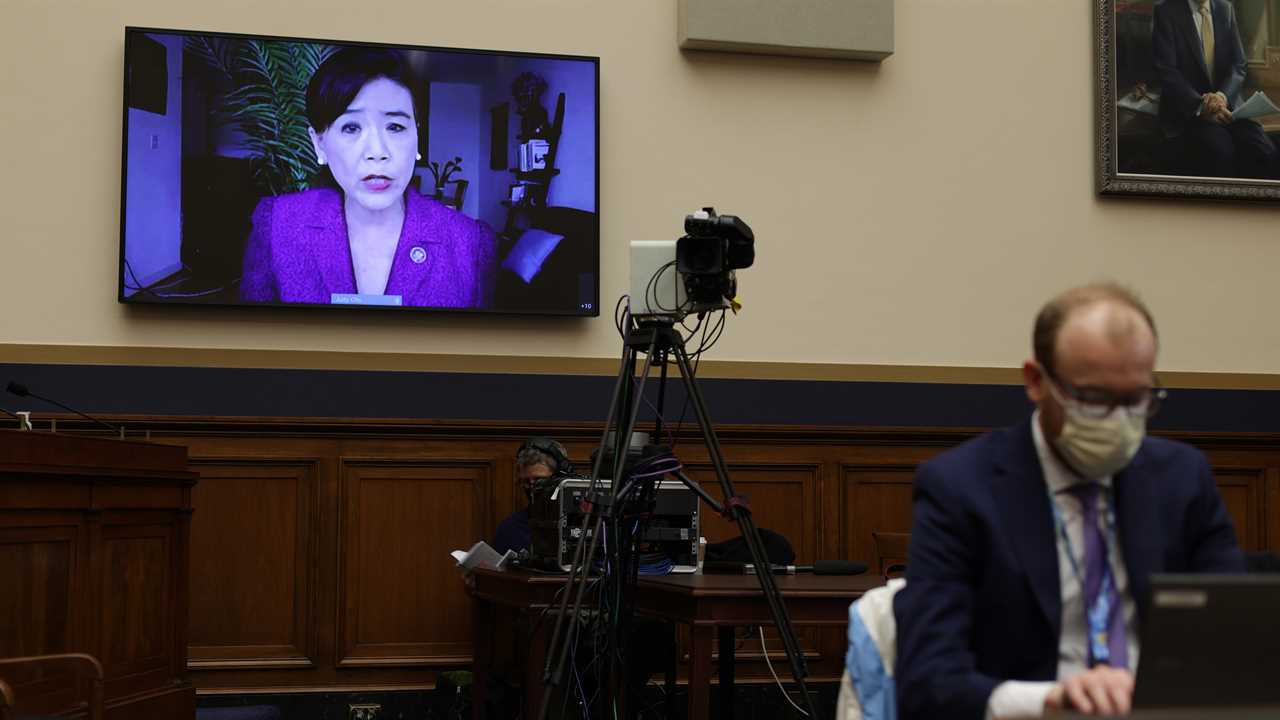
WASHINGTON — Asian-American lawmakers warned the House Judiciary Committee on Thursday that the nation had reached a “crisis point” amid a sharp increase in discrimination and violence targeting the Asian community, in the first congressional hearing on the issue held in over three decades.
The hearing, which was scheduled weeks ago, came on the heels of a mass shooting in which a white gunman killed eight people at three Atlanta-area massage parlors. Six of the victims were of Asian descent.
Lawmakers described the fear and trauma rippling through the Asian-American community, and they argued that the uptick in attacks on Asian-Americans was a direct result of the rise of anti-China messaging stoked during the coronavirus pandemic. At times, the hearing turned heated, as visibly frustrated Democratic lawmakers confronted Republicans on the panel for using language they said endangered Asian-Americans.
Attacks targeting Asian-Americans — many of them women or elderly — have increased nearly 150 percent in the past year, experts testified on Thursday. Americans of Asian descent have reported being slashed across the face with a box cutter, burned by thrown chemicals, punched in the face, and shoved to the ground.
“You can say racist, stupid stuff if you want, but I’m asking you to please stop using racist terms like ‘Kung flu’ or ‘Wuhan virus’ or other ethnic identifiers in describing this virus,” Representative Ted Lieu, Democrat of California, told Representative Chip Roy, Republican of Texas. “I am not a virus. And when you say things like that, it hurts the Asian-American community. Whatever political points you think you’re scoring by using ethnic identifiers in describing this virus, you’re harming Americans who happen to be of Asian descent.”
Mr. Lieu’s comments came after Mr. Roy, one of the top Republicans on the judiciary panel, used his introductory remarks to issue a lengthy condemnation of the Chinese government’s handling of the coronavirus and asserted that objections to what he categorized as nothing more than hawkish messaging about China amounted to “policing” of free speech.
“There’s old sayings in Texas about, you know, ‘find all the rope in Texas and get a tall oak tree.’ You know, we take justice very seriously, and we ought to do that — round up all the bad guys,” Mr. Roy said in comments that drew outrage on Twitter. “My concern about this hearing is it seems to want to venture into the policing of rhetoric.”
Representative Grace Meng, Democrat of New York, took exception to the remark.
“Your president, and your party, and your colleagues can talk about issues with any other country that you want, but you don’t have to do it by putting a bull’s-eye on the back of Asian-Americans across this country, on our grandparents, on our kids,” she said.
“This hearing was to address the hurt and pain of our community, to find solutions,” she added, “and we will not let you take our voice away from us.”
Later, Mr. Roy issued a statement responding to the backlash over his comments, which appeared to refer to lynching, saying he stood by the idea that “we need more justice and less thought policing” and would offer “no apologies.”
The exchanges reflected the deeply partisan fault lines that have emerged around the issue of anti-China messaging, as Republicans have continued to mimic xenophobic phrases used by former President Donald J. Trump and as lawmakers in both parties have taken an increasingly combative tone toward the Chinese government.
Last year, Ms. Meng sponsored a resolution that denounced “anti-Asian sentiment related to the coronavirus” and that specifically condemned the phrases used by Mr. Trump and other elected Republicans like “Wuhan virus” and “China virus” to describe Covid-19. The House passed the resolution, but 164 Republicans opposed it.
“It’s as if the society’s superego that keeps these dark forces down has been greatly diminished or even removed,” Senator Chuck Schumer, Democrat of New York and the majority leader, said in remarks from the Senate floor. “It is up to us — particularly under a new president who fights bigotry at every step of the way — but it’s up to all of us to speak out against it and to act against it.”
John C. Yang, the president of Asian Americans Advancing Justice, testified that “the health and economic fears caused by Covid-19 have led people to look for someone to blame.”






